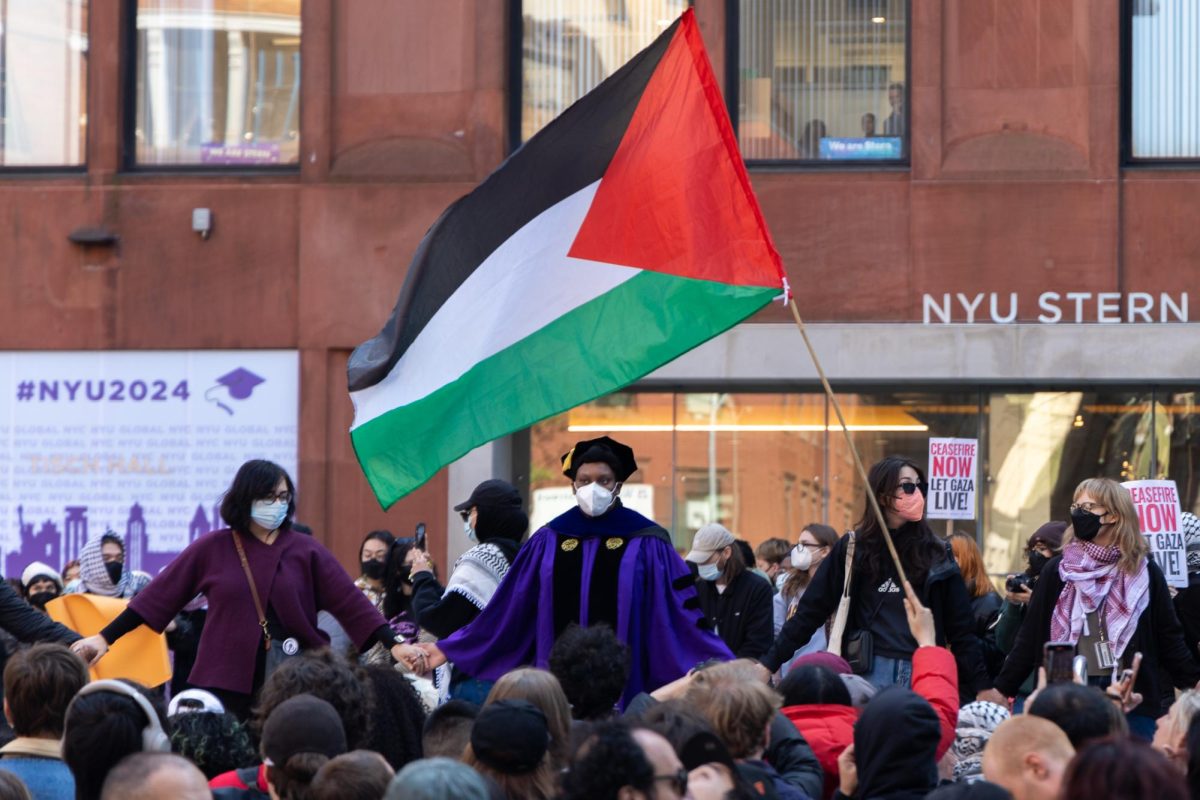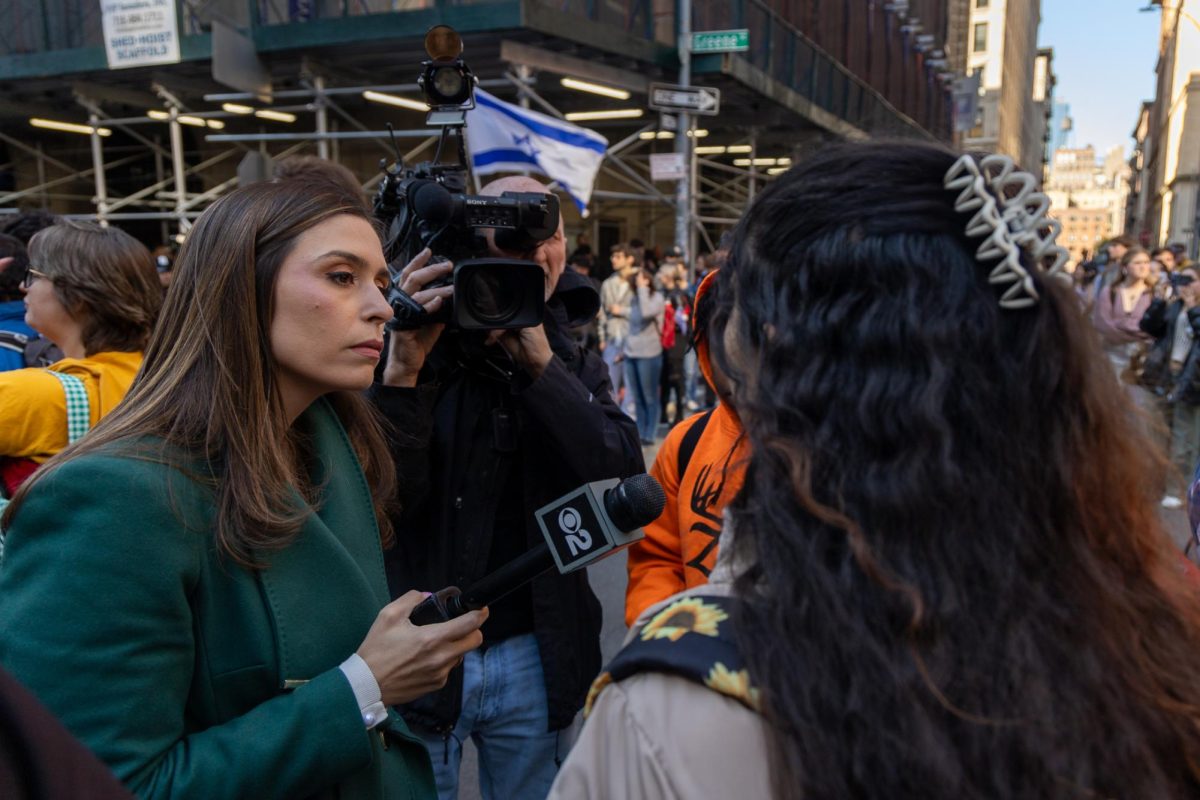Hollywood’s Turbulent Relationship with Asian-American Actors
October 5, 2017
Quick! Without laying a finger on your phone, could you tell me who Krishna Pandit Bhanji is? Or would you care to guess who Estelle Merle O’Brien Thompson was?
What if I told you that these two are the only Asian artists to have been nominated for or won Best Actor at the Academy Awards? Yes, even O’Brien Thompson (better known as Merle Oberon) counts. What if I called Bhanji by another name? Perhaps you’d recognize him instead as Ben Kingsley.
There’s a good chance you’re at least a little shocked, if not confused, that Kingsley and Oberon are the only leading Asian actors to have received such honors in 88 consecutive years of Academy Awards. But before we begin wandering down the treacherous path that will likely have us appraising both actors’ ethnicities, let’s consider the bigger issue at hand. Kingsley and Oberon are two of a select few Asians to have been recognized by the Academy Awards for their success.
What’s more important to consider than exactly how Asian they may appear, if that’s even possible to gauge, is the criteria by which they have achieved success. In both actors’ cases, the single greatest criterion was an ability to present as more Euro-centric — to reinvent their names and identities as seemingly more white.
This isn’t an accusation that either Kingsley or Oberon somehow duped Hollywood and their fans. Instead, it is a recognition of the incredible pressures that compelled two people of South Asian heritage to deemphasize major parts of their identities — all for a chance of equal opportunity.
Oberon, who many have described as an Anglo-Indian actress, reached the height of her fame in the 1935 film “The Dark Angel.” But few know that she was actually the daughter of a half-Sri Lankan, halfMaori woman, according to an article in Vanity Fair. The author of the article adds that Oberon’s father was a British mechanical engineer and that she was born in Mumbai.
Throughout her career, Oberon strived to conceal her South Asian heritage. She reinvented herself as the daughter of a British Army Officer, born in Tasmania and raised by “aristocratic Indian godparents,” Liebman writes. To evade sticky labels like exotic, Oberon whitened her complexion with makeup and used brightening lights, which were later nicknamed after her.
Kingsley, who came to fame 50 years later, struggled with similar conflicts between identity and industry. In a 2009 interview with NewsX India, Kingsley spoke frankly about his pseudonym. When auditioning as Krishna Bhanji, Kingsley explained, the response from directors was almost always, “we don’t know how to use you in our repertoire.” The solution, Kingsley recalled his father saying, was “very simple, just change your name.”
Since then, Kingsley has starred in chart-smashing films like “Schindler’s List,” “Shutter Island” and “Hugo.” But his most famous film by far was the award-winning 1982 film “Gandhi,” for which he won best actor. This film calls into question both Kingsley’s and Oberon’s battles with identity. Why go through the trouble of whitening and still play India’s most revered activist?
This question hits on a serious flaw in popular media and entertainment: whitewashing. The term has come to define the practice of casting white or fair skinned actors for non-white roles, excluding equally qualified people of color. In the past, white actors donned yellow or black face and portrayed POC in intentionally derogatory caricatures. Practices soon developed into the standard substitutions of POC with white actors. But in recent years, whitewashing has come to include the omission of POC from entire casts and plot lines — a form of cultural erasure.
The problem, BBC commentator Emma Dabiri notes, is that whitewashing restricts “representation of the diverse ways of being black, Chinese or Middle Eastern” and so on. Whitewashing not only robs POC of job opportunities, it distorts the public understanding of what it means to be a POC. It is no wonder that Kingsley and Oberon used their fair skin to their advantage. It’s hard to fault them for trying to beat inequality.
While Kingsley and Oberon serve as great case studies on the effect of whitewashing, the issue transcends film. Whitewashing is a remnant of colonialism and can be found in every form of media and entertainment developed by Euro-American society, whether television, music, literature, opera or animation.
Change is happening, but it is gradual. POC have only recently arrived in a position where they have the power to speak out. Similarly, it is only recently that we’ve developed the kind of vocabulary needed to accompany these issues.
A version of this article appeared in the Thursday, Oct. 5 print edition. Email Abe Selby at [email protected].











































































































































